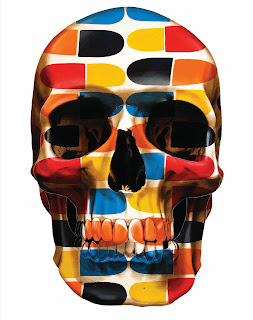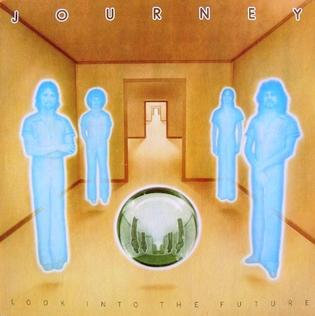Writing a book is just the start of the journey to publication, whether you’re self published or taken on by a publisher. More and more people, including agented and published authors, are taking to self publishing as Internet-enabled tools to create and distribute books lessen the value of a mainstream publisher's contribution to the process. We’ve seen this process before, it’s called ‘disintermediation’, when an intermediary is removed from a process by the Internet. And Amazon is a great disintermediator.
This means I can find my readers anywhere in the world and get a book to them without having to physically create and distribute tens of thousands of books. It also means anyone who has written a book can now get on the Web and promote it. Including the lunatic on the bus who has an atom bomb in a corned beef tin, the author of a dreary memoir of life in Tuscany and the deluded nincompoop who’s penned a trilogy about a dystopia where dolphins are smarter than people. Oh hang on a second...
That clutter means authors – all authors – have an awful lot of noise to cut through. And we face readers increasingly barraged by needy wails of ‘buy my book’. And yet you need to get your book out there.
As they say here in Dubai: What to do?
There are a lot of people out there ready to help you in this endeavour, for a few dollars. I tried a couple but I never really believed in them and I was right. The recommendation of someone who sells recommendation is worthless. Honest reviews are gold dust, but only part of the formula. Social interaction is good, but you really have to balance promotion with content – some would argue I got that balance wrong with Olives – A Violent Romance, but I’m happy with myself overall.
The one critical lesson I’ve learned about book marketing is the lesson I learned when I first took a sales job in the early 1980s. AIDA – Attention, Interest, Desire, Action. People don’t just buy books. They have to have their interest piqued in some way – something has to catch their eye. And that something has to evoke enough curiosity for them to want to look under, literally, the covers. What they find has to make them want the book, because only then (and I have been amazed at how much pushing it takes to take the horse to water) will they actually click on that link to Amazon.
It’s worth looking at each of these four cardinal rules of sales:
ATTENTION
Your cover is critical. I love the cover of Olives, it’s a point of considerable pride that I could pick my own cover artist and that the talented Naeema Zarif brought her unique style to the book’s cover. But compare Olives to Beirut and you’ll find I was being self-indulgent. Appropriate to the book? Yes. Artistically valid? Yes. But that’s not what it takes. It takes immediate, in your face whambam.
As I pointed out in my workshop at the Emirates Airline Festival of Literature on book promotion and marketing, you need a ‘book hook’, something that makes the book stand out and attract attention. In Olives it was water rights and the drought gripping the Levant. Lead with this, build your content around it – and get that content out there.
Traditional media is key. Radio, TV, newspapers, magazines. Features about you and your book hook, reviews. Do signings, book clubs, conferences, book fairs, workshops, readings. Take every chance you can to get out there. Recruit supporters whenever you can. This can be exhausting, but it’s necessary. Build a media database and send out review requests to as wide an audience of reviewers as you can. The more you’re in front of people, the more attention you’re getting.
If you can’t bear the thought of all that attention, I’d consider whether you want to do this book thing. I fear in today’s world all authors are being forced blinking into the spotlights to face the audience and ‘engage the community’. And yes, that includes the conventionally published.
Talking of communities - I cannot over-emphasise the importance of communities in promoting books. If you're an active and contributing member of an online community, their help can get you off the ground in no time.(Anyone out there remember the deep joy of Klazart gaming Authonomy?)
A website for a book is critical – it’s somewhere you can point people (Twitter is great for attention, but you need to trigger a click somewhere – and that somewhere has to build interest) and tell them more about the book. The Olives website is probably too busy and contains too much information. The site’s not there to celebrate or justify your work – it’s there to trigger a link to ‘buy the book’. You also need to bear SEO in mind – the site is a discoverable asset: when I search your name, your book or even the topics your book is based around, I should find YOU staring at me.
The Olives website is hardly the Huffington Post – in the year it’s been around, it’s pulled 4,200 page views - some 340 visitors clicked on the ‘Buy Olives’ link. The majority of visits have been from the UAE and USA. However, it’s also been somewhere I could post some of the many positive reviews of the book, giving me credibility – particularly with book bloggers who can be resistant to self published writers. And good reviews are critical in building attention and desire.
The Olives blog has been a much bigger traffic draw with over 10,500 page views (about 500 of these were for the Olives is blocked in Jordan post – a wee whiff of controversy I refused to capitalise on and fan into flames. Looking back, I rather wish I had now).
The blog was intended to create a stream of content that was, again, discoverable and also to engage potential readers with the book, taking excerpts from the book that touched on some of the issues it’s built around – the water conflict in the region, nationality and identity and the Palestinian story. It also discussed issues brought up by book clubs and reviewers – including the book’s treatment of alcohol and sexuality in the Middle East. It also gave a steady source of content that went beyond ‘buy my book’.
The Beirut- An Explosive Thriller website is, by the way, much cleaner and faster to get to the point.
INTEREST
So you won the click. Now you can sit back and enjoy yourself. Not a bit of it. Now you have to build interest. I’m interested enough to give you my consideration, how do you hold me? In today’s world, when every movement of our online eyeballs brings a new skateboarding dog or man with five nipples, that’s a big ask.
The big tool here is your ‘blurb’, the summary of your book’s content that graces the back cover. Writing blurbs is a skill in itself – what do you leave in, what do you take out? How do you describe your story enticingly and draw the reader in? I’m not about to write a piece on how to write blurbs, it’d turn this already long post into a book in itself. But précis, précis, précis is the key. And, as in your writing, try and make one word do the work of ten. A quick example from the blurb for Beirut – An Explosive Thriller:
Michel Freij is about to become the next president of Lebanon.
One of the feared Grey Havens Gang suggested:
Michel Freij is poised to become the next president of Lebanon.
See? That one word is so much more dramatic. It’s detail like that has to go into your blurb. And you should learn it off by heart, because when people ask you ‘What’s your book about?’ you have their attention, your answer will dictate whether you have their interest.
The content you create, including the content of your book site, should build on interest, deepening people’s engagement with your work. This is desire at work.
DESIRE
I was attracted by the cover, liked the sound of the book and enjoyed what the author said about it/what I read on the book’s website. I think I’d like to read some more of it. The extract made available by Amazon (you MUST enable sampling on Amazon, Smashwords et al – and have a sample, say an opening chapter, on your website) was well-written. Hell, I’m going to do this thing.
This is desire.
For most of us, desire is tempered by price. I’ll give you an excellent and personal example. I am re-reading the paperback of Evelyn Waugh’s ‘Scoop’. I’ve had that book for years, this was the first time I notice Penguin hadn’t bothered re-setting the book – the margins are massive and if that had been my book, people would have complained to me. Whatever, I simply can’t settle down with paper these days so I tootled off to Amazon to get me a Kindle copy. £7.99. I couldn’t believe it. The Kindle version of a 1938 book is £1 MORE than the paperback.
I really want to read Scoop on my Kindle, but I’m not paying a greedy, stupid publisher (listening, Penguin?) £7.99 for it. It’s simply not happening.
Book pricing can make you or break you. And that’s another post right there.
ACTION
It all leads to this. The click on your 'buy my book' link, the click through to Amazon or iBooks or wherever else your book is available from. It goes without saying that each site needs to be well populated with good, well-edited content, properly tagged and your author pages etc available and updated. Don't shrug this advice off - Olives was filed under 'theatre' in iBooks for almost a year because I tagged it in Smashwords as 'Fiction - Drama'. I only found out after my Mum bought me an iPad for my birthday!
It doesn’t end with action. That click to buy your book is a chance to engage your readers as components of your marketing campaign. Encourage reviews, seek feedback, enrol evangelists. Now, if readers are telling you your book sucks, there’s valuable input for you. It might hurt, but thicken up your skin and suck it up – if you need to improve your game, there’s no better way to do it than listen to your customers. If multiple readers have a problem with a character or point out a flaw in your dialogue, you’d be mad not to re-evaluate that work.
There’s no more powerful marketing tool than third party endorsement - if readers like your work, get them to tell others. Encourage reviews on Amazon, Goodreads or Shelfari. Repost these to Twitter (not in a constant stream, mind) and host them on your book blog. Post ‘em to Facebook. Get the good news out there. Because you won a click on ‘Buy with Whispernet’ and now the eternal, Sisyphean cycle starts again. A happy reader buys you attention. A happy reader makes you interesting. A happy reader builds desire. A happy reader can provoke action.
I love happy readers.
(You can become one too, by clicking on this link to the website for Beirut - An Explosive Thriller and then wandering over to the 'Buy Beirut' section!)
If you want to talk books and have a drink or three, the celebration of the launch of Beirut takes place tonight at Billy Blues in Satwa, Dubai. The invite's here.









![some old books i found in the guest room. =]](http://upload.wikimedia.org/wikipedia/commons/thumb/f/fb/Old_book_-_Timeless_Books.jpg/200px-Old_book_-_Timeless_Books.jpg)



_AW_REL.jpg)
